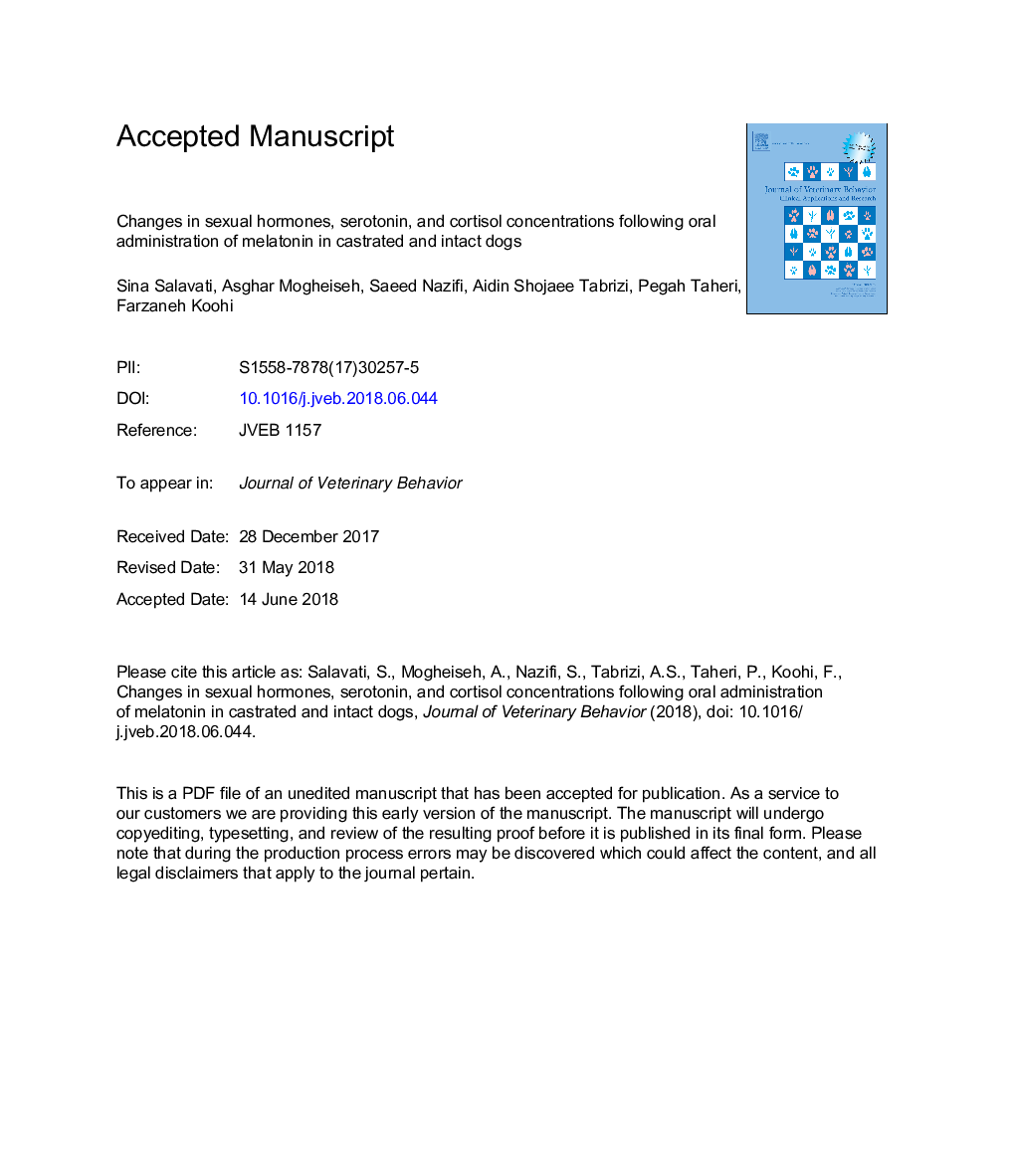| Article ID | Journal | Published Year | Pages | File Type |
|---|---|---|---|---|
| 8483961 | Journal of Veterinary Behavior: Clinical Applications and Research | 2018 | 20 Pages |
Abstract
Melatonin is a regulatory hormone that orchestrates many responses to changes occurring in the body and environment. In the present study, melatonin was administrated immediately after castration to 20 male dogs (3 mg/10 Kg, Per os or orally, four groups [n = 5]: melatonin, castrated, castrated + melatonin, and control) for 30 days. Blood samples were collected weekly from jugular vein from 2 days after melatonin administration. Steroidal hormones (estradiol, testosterone, progesterone (P4), and cortisol) and serotonin were measured by enzyme-linked immunosorbent assay kits. The results indicated that melatonin decreased P4 in intact (P = 0.001) and castrated dogs (P = 0.004) in comparison to the control groups. Castration decreased testosterone levels in compared to control (P = 0.01) and intact-melatonin-treated group (P = 0.003). Melatonin increased concentration of testosterone in compared to control (P = 0.003) and castrated-melatonin-treated groups (P = 0.002). Estradiol 17β decreased in castrated (P = 0.03) and melatonin (P = 0.03) treated dogs in comparison to control group. There was a significant difference in cortisol concentration between castrated and intact-melatonin-treated groups (P = 0.03). Castration of dogs decreased serotonin levels compared to the control group (P < 0.0001). Melatonin increased serotonin concentration in intact and castrated dogs compare to the control and castrated dogs (P < 0.0001). In conclusion, some positive effects of melatonin administration were detected in intact and castrated dogs. Therefore, it seems that administration of melatonin can be helpful in ameliorating the undesired effects of castration and may improve the quality of dog's life.
Related Topics
Life Sciences
Agricultural and Biological Sciences
Animal Science and Zoology
Authors
Sina Salavati, Asghar Mogheiseh, Saeed Nazifi, Aidin Shojaee Tabrizi, Pegah Taheri, Farzaneh Koohi,
